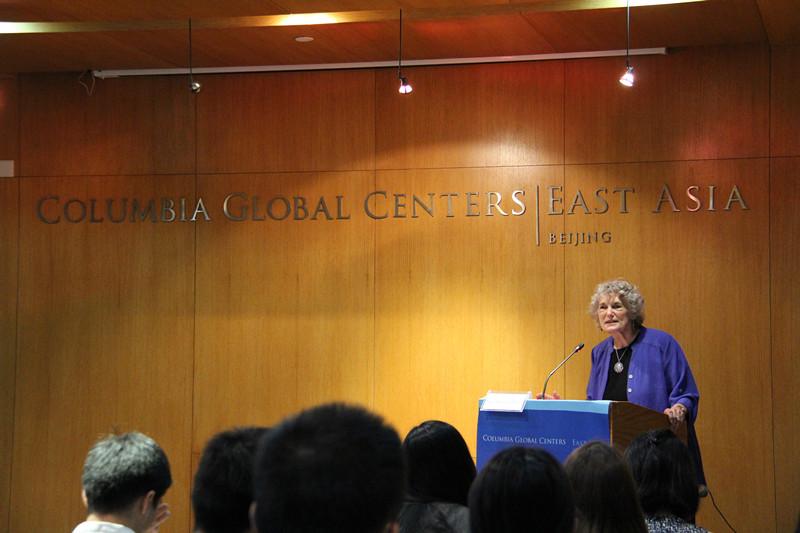Sandberg advocates for women to move up the ladder through being more demanding, aggressive, competitive and insistent. Prof. Kessler-Harris suggested that such a message can be seen as “selling out the women’s movement”, rather than leading a feminist movement. The idea of “leaning in” is based on and reinforces American individualism ("another type of men’s liberty") ---the path of citizenship that men have built and successfully imposed in the 19th century.
On the contrary, the historic record reveals a different path for women than individualism: in the 19th century when women were deprived of liberty, rights and freedom, women succeeded in uniting together and making their voices heard through influencing their families in outlawing slavery and in calling for better living condition for European migrant labor. Taking the stand of “defending motherhood”, women at that time began to expand their influence on education, workplace conditions, and public space, sanitary conditions and so on, which contributed to the “progressive movement” in the early 20th century.
Women’s definition of liberty (positive liberty) thus differed from men’s version (negative liberty). Women argued for social citizenship that stressed shared responsibility and benefit for all walks of society, while the masculine liberty valued independence and self-reliance.
In the mid-1960s, the women’s liberation movement gained many more economic and social rights for women that they had been fighting for: more equal pay, less gender discrimination, education rights etc. However, while some women are beginning to enjoy more equal rights with men, liberal feminists neglect the shared responsibility for poor, African American and migrant women.
Social feminists, which Prof. Kessler-Harris identifies herself as, focus more on the version of women’s citizenship that quests for better welfare payment, higher minimum wages and more voices for underprivileged women. This group of feminists are trying to re-infuse the old notion of shared responsibility in today’s discussions and practices: without safe space, public housing, schools, clean streets and so on, there can’t be real liberty.

